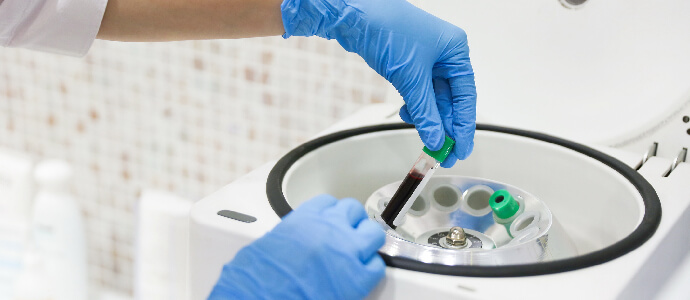Capuano IP helps clients around the country bring their biologic and biosimilar products to market. Well-versed in the Biologics Price Competition and Innovation Act (BPCIA), we understand biologics from both a legal and scientific perspective.
We advise research companies, universities, and hospitals that are developing large molecule products – vaccines, blood, blood components, gene therapy, tissue, and other proteins – and help them navigate the competitive patent landscape.
Our experience with the BPCIA “patent dance” combined with our deep scientific analysis makes us uniquely suited as an IP boutique in this area.
What Is the BPCIA?
The Biologics Price Competition and Innovation Act (BPCIA) was enacted as part of the Affordable Care Act in 2010. The BPCIA established an abbreviated regulatory pathway for the approval of biosimilar drugs. A biologic product can be licensed as “biosimilar” to an already-approved biologic, provided that:
- The product is highly similar to the reference product and
- There are no clinically meaningful differences between the biological product and the reference product in terms of safety, purity, or potency.
The abbreviated pathway permits a “biosimilar” product to be licensed on less than the full scale of preclinical and clinical test data normally required for Food and Drug Administration (FDA) approval of a biologic drug.
A biosimilar can also obtain “interchangeable” status from the FDA, which allows the product to be substituted for the reference product without the healthcare provider’s approval (in states that have adopted automatic substitution laws). To be approved as an interchangeable product, the biosimilar product must:
- Be expected to have the same clinical result as the reference product
- Not increase risks to patients in terms of safety or diminished efficacy
Given the IP challenges associated with developing, manufacturing, and obtaining approval for biologic and biosimilar drugs it is essential to work with an experienced BPCIA attorney.
Patent Disputes Involving Biosimilars
The BPCIA provides a framework to resolve patent disputes involving biosimilar products, referred to as the “patent dance.” In short, the law specifies a schedule of timed steps during which the applicant and reference product sponsor exchange confidential information disclosed in the abbreviated biologics license application. Both parties identify patents that could be litigated in two potential phases of litigation.
In phase one, the sponsor can allege infringement of patents identified during the patent dance. Phase two begins after the sponsor receives a Notice of Commercial marketing from the applicant; the sponsor can then assert any remaining patents not previously identified. If both parties take part in all of the steps outlined in the BPCIA, including resolution negotiations, the patent dance can take up to 8 months.
It is important to note that a 2017 Supreme Court ruling in Sandoz v. Amgen held that the patent dance is optional and that a Notice of Commercial Marketing may be provided before or after FDA approval. However, an applicant that engages in the patent dance reserves the right to file a declaratory judgment to challenge the validity of the identified patents. If the applicant opts out of the dance, the reference product sponsor has the right to immediately seek a declaration of infringement, validity, or enforceability of any patent claims.
Ultimately, the composition and activity of biologics depend on how they are manufactured. For this reason, patents protecting biologics typically cover all stages of the manufacturing process, and manufacturing patents play a key role in biosimilar litigation.
Representing Makers of Biologics and Biosimilars Nationwide
At Capuano IP, our practice is focused exclusively on intellectual property rights in the pharmaceutical, chemical, and life sciences. We leverage our comprehensive knowledge of the BPCIA and our scientific rigor to help clients navigate the IP space involved in developing biologic and biosimilar drugs. Our legal services include:
- FDA Citizens Petitions
- Freedom to Operate Analysis
- Infringement, Validity and Unenforceability Analysis
- Due Diligence Review
- Post-grant proceedings (post-grant review, inter partes review)
- BPCIA “Patent Dance”
- Biosimilar Patent Litigation
- Product Launch Strategies
- Patent Portfolio Management
We also provide ongoing counsel on emerging issues in biologic and biosimilar law, including:
- Antitrust issues
- FDA guidance and updates
- Interchangeability
- Relevant federal circuit court rulings
Whether you need assistance asserting your patent claims for a biologic or challenging the validity of a sponsor’s patents, we have the skills and experience to help you navigate the patent dance, negotiate a settlement if possible, and litigate at the PTO or in Federal Courts when necessary. Contact us today for a consultation.
Located north of Boston in Salem, Massachusetts, Capuano IP advises clients with compliance information regarding the Biologics Price Competition and Innovation Act (BPCIA) in the greater Boston and Cambridge area.
